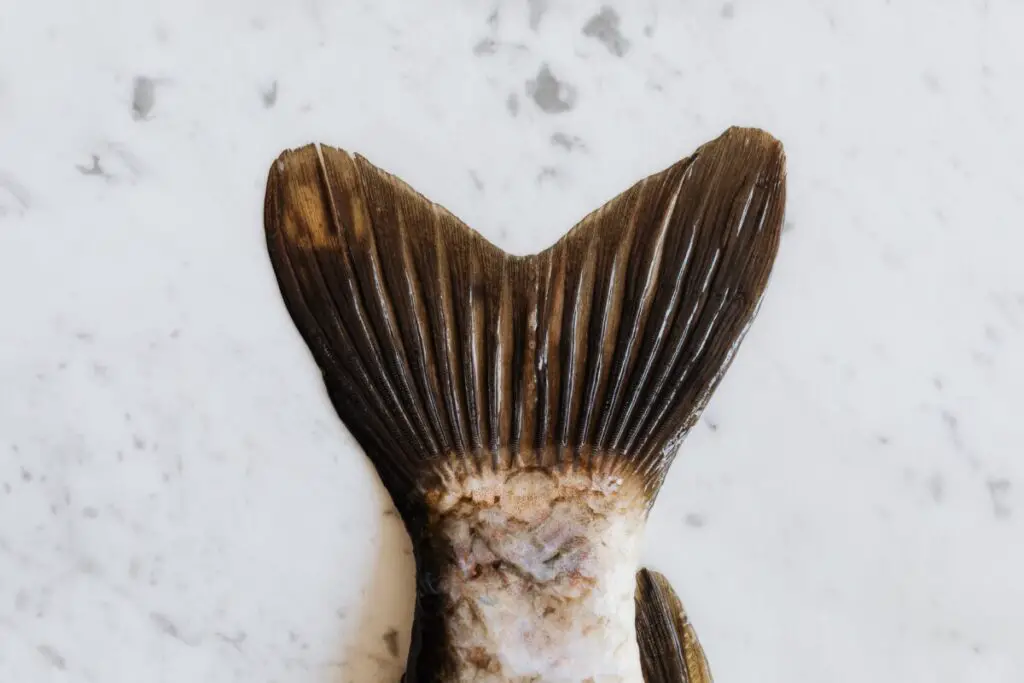If there is a sickening fishy smell or taste coming from your filtered Zero water, then you have fallen victim to the process through which ZeroWater improves on other water filters. If this sounds illogical, don’t worry, it does make sense and there is even a solution.
ZeroWater’s water filters operate via a chemical process called ion exchange technology, and the ions used by this technology sometimes release trimethylamine, an organic compound that smells like rotten fish. The remedy is a complete system clean and frequent filter replacement.
Together with an explanation for the fishy smell, this article includes a recommendation of which filters to buy, a list of chemicals to keep away from your filter, and the solutions for some other annoying smells that might creep into your filtered water.

What is the Origin of the Fishy Smell?
Most, or actually almost all, water filters use carbon fibers to remove impurities from water. Because the carbon granules are porous, they can trap and absorb contaminants.
But if you look at the specifications of these filters, including ZeroWater’s own faucet-mounted carbon fiber filter, they aren’t quite capable of removing 100 percent of contaminants. They are normally rated for between 50 and 90 percent removal.
ZeroWater’s answer to this slight shortcoming is to make a filter that uses a different technology, namely ion exchange, to remove contaminants. Scientists have been using it for ages because many of their experiments require 100 percent pure water. During this process, dissolved ions, such as metals in water, are removed and replaced with ions of the same electrical charge.
How does this work?
The ion exchange resin consists of organic polymers that form a network throughout which there are lots of ion exchange sites. At each of these sites, there are either positively charged ions (cations) or negatively charged ions (anions). These cations and anions contain hydrogen and hydroxide.
Every time a cation or anion pulls a contaminant ion from your tap water, it replaces it with a hydrogen or hydroxide ion. And when hydrogen and hydroxide combine with each other, they form pure water, or H2O.
In other words, the cation and anion resins extract contaminants from the water and then replace them with pure water.
When all the ion exchange sites in the network are filled with contaminants and all the hydrogen and hydroxide ions that used to be there are used up, it is essential to replace your filter.
But as perfect as this technology appears, there is one possible problem. Cations and anions degrade and decompose over time, like almost everything else degrades. Think vegetables, cooking oil, iron, water, and so on.
This is fine in the case of cations; all that can happen is that they might stop working. But as a byproduct of their decomposition, anions release trimethylamine, the same compound that is produced when dead fish flesh decomposes.
And now you understand the origin of the fishy smell in your ZeroWater filtered water. It is released when the anion ions in your filter degrade.
The Solution
- The most important thing is to replace your ZeroWater filter, either when you have filtered 20 gallons of water, or when the included water quality meter displays a measurement of 006 in your filtered water. If your tap water has a higher TDS (total dissolved solids) score than 300, your filter won’t even last as long as 20 gallons.
- Trimethylamine, like rotten fish, is extremely difficult to wash off plastic. So, if you replace your filter too late, you will have to take the whole pitcher apart (including the spigot), wash it with normal dish washing soap (not bleach), rinse it, dry it with paper towels, repeat this process several times, and put it back together with a new filter.
- While very few studies are available on the degradation of anions, there is a study that shows that they degrade a lot faster in heat and are most stable at room temperature. Accordingly, it is best not to use your filter with hot water, and it is probably safer to keep the pitcher itself out of the fridge.
- Since only some ZeroWater users complain about the fishy smell, it is possible that specific substances in tap water cause anions to degrade faster. But other than confirming that chloramine and chlorine degrade anions, research is scarce. If you live in a municipality that uses a lot of these to clean the water, the ZeroWater filter might be the wrong filter for you.
- Other substances that have strong oxitive power and that might degrade the anions are hypochrorites and peroxides (such as in disinfectants), ozone (such as emitted by photocopiers and air purifying devices), and nitric acid (in fertilizers). If it is not possible to keep these substances away from your filter, you may have to pick a different brand.
- Since the company’s reputation depends on it, it is probably a good idea to buy only those filters specifically manufactured by ZeroWater. There are cheaper alternatives that fit, but you cannot know whether their factories take care to protect the resins from things like light and oxygen that might age them prematurely.
Is This a Problem for All ZeroWater filters?
This is an issue only in filters that use ion exchange technology.
It includes all ZeroWater’s pitchers and dispensers, but not the faucet mount filter, as it uses carbon fiber technology to filter water. If used beyond its used-by date, the faucet filter’s water can become acidic and develop the problems discussed below.
Why Your ZeroWater Tastes Funny
Why Your ZeroWater Tastes Sour
ZeroWater warns that the filtered water becomes acidic if the filter is used beyond its expiry date, which means 20 gallons for the pitchers and 400 gallons for the faucet mount filters. They do not explain why this happens, but it is likely to be a result of all the metals and other contaminants that are stuck in the filter and are now being dumped back into your water.
Another explanation unique to the pitchers is that the hydroxide ions in the filter are used up first, and that only hydrogen ions are now being placed in your water. Hydrogen-rich water is acidic.
On an educational project supported by the department of Education, California State University, and University of California Davis, researchers explain that substances with a pH between four and five taste sour or tart.
Why Your ZeroWater Tastes Like Lemon
It tastes like lemon because the filter has passed its expiry time ages ago and the filtered water is now becoming extremely acidic. Researchers have pointed out that water with a pH at or below three tastes pleasantly sour or tart, especially if it is mixed with sugar.
That is exactly why sodas and fruit juices taste so good.
Why Your ZeroWater Tastes Like Plastic
If you are sure that it is not the tap water that tastes like plastic because of new or degrading pipes, then your filter may need to be properly washed before use.
ZeroWater states that it washes its own filters, but if you buy filters from a different manufacturer, you may need to run half a gallon or more of water through it before you drink it.
Why Your ZeroWater Tastes Like Chlorine
Most municipalities use chlorine to clean your tap water, but the ZeroWater filters are rated to remove it. It is important to verify that it is the filtered water that tastes like chlorine and not the tap water.
If you are sure that it is the filtered water, the filter may be overused and producing acidic water with a chemical taste that reminds you of chlorine. Replacing the filter with one made by ZeroWater should solve the problem.
How to Replace a ZeroWater Filter
- Remove the lid and the reservoir.
- Unwrap the filter packaging, discard it, and screw off the blue cap if needed.
- Make sure that the silicone ring is tight against the filter.
- Screw the filter into the bottom of the reservoir and tighten it to ensure that it is completely sealed.
- Do not try to place the filter into the reservoir from above.
- Put the reservoir back into the pitcher, fill up the top reservoir, and put back the lid.
With its borrowing of ion exchange technology from scientific experiments, ZeroWater has given us a good water filtering option, but one for which it is extremely important to follow the manufacturer’s usage guidelines to prevent our filtered water from becoming even more disgusting than that from our taps.
- The most important thing is to replace your ZeroWater filter, either when you have filtered 20 gallons of water, or when the included water quality meter displays a measurement of 006 in your filtered water. If your tap water has a higher TDS (total dissolved solids) score than 300, your filter won’t even last as long as 20 gallons.
Water Purification Guide has information on how to use a ZeroWater TDS meter available here.
